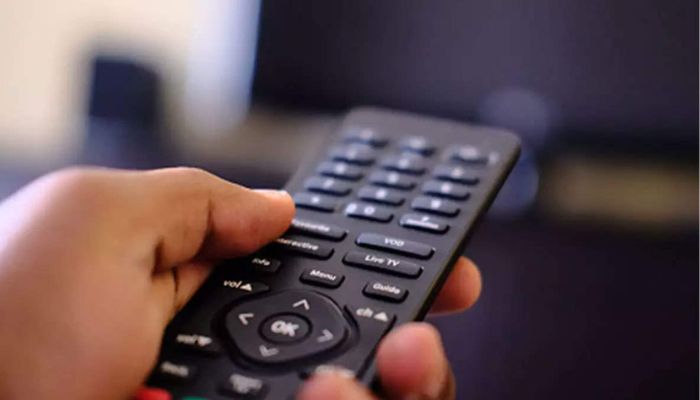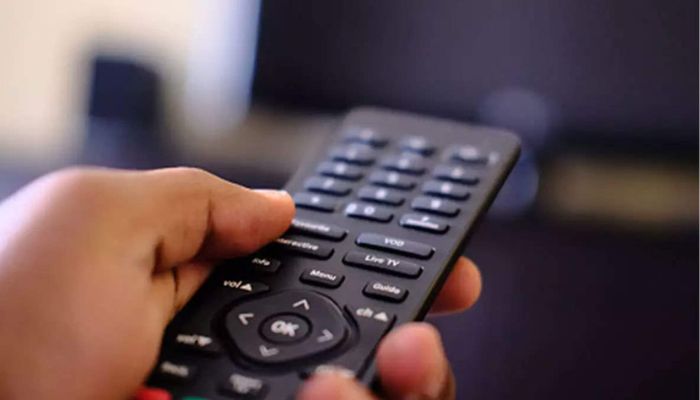In a recent parliamentary committee meeting on communications and information technology, the spotlight was firmly on the economic challenges faced by viewers and local cable operators (LCOs) due to Goods and Services Tax (GST) implications and the compulsory subscription to channel bouquets. This article delves into the key points discussed during the meeting and the potential ramifications for both consumers and operators.
| Table Section |
|---|
| 1. Introduction |
| 2. Viewer's Financial Dilemma |
| 3. TRAI's Perspective |
| 4. GST Woes for Local Cable Operators |
| 5. Industry Landscape: Growth and Challenges |
| 6. Harmonizing Right-of-Way Rules |
| 7. Looking Ahead: The Proposed Broadcasting Services (Regulation) Bill, 2023 |
| 8. FAQ |
| 9. Conclusion |
Viewer's Financial Dilemma: The Burden of Mandatory Channel Bouquets
The meeting underscored the concern that viewers often find themselves burdened by the mandatory subscription to channel bouquets. Despite the average household watching fewer than six channels monthly, they are compelled to subscribe to bundled packages, leading to unnecessary financial strain. Committee members raised valid questions about the feasibility of unbundling channels to offer viewers greater flexibility in their subscriptions.
TRAI's Perspective: Channel Bundling vs. Viewer Financial Comfort
Acting chairperson of the Telecom Regulatory Authority of India (TRAI), Meenakshi Gupta, presented TRAI's perspective. TRAI argued that channel bundling is a more cost-effective approach for TV channels, as it reduces overall costs. This ignited a discussion about finding a balance between alleviating financial pressure on viewers and ensuring the financial sustainability of the television industry.

GST Woes for Local Cable Operators: Multi-System Operators Speak Out
A significant concern raised during the meeting was the imposition of GST on local cable operators (LCOs). Multi-System Operators (MSOs) like Hathway expressed their concerns about being compelled to pay GST on the charges levied by LCOs. This is particularly challenging since LCOs, often small operators, fall outside the GST ambit. The Ministry of Information and Broadcasting officials clarified that decisions regarding GST are within the purview of the Ministry of Finance.
Industry Landscape: Growth and Challenges
According to TRAI data, India boasts 915 permitted private satellite TV channels and around 332 broadcasters. The media and entertainment sector have seen significant growth, with a 19% increase in advertising and a 13% rise in subscriptions, as reported by a FICCI study earlier this year. However, the current discussion emphasizes the need for a delicate balance to ensure sustainable growth.
Harmonizing Right-of-Way Rules: Streamlining Cable Infrastructure Challenges
The meeting briefly touched on the challenges posed by conflicting right-of-way (RoW) rules, complicating the laying of cables for telecom, television, internet, and electricity. Members discussed the need for harmonization to streamline processes and reduce complexities, facilitating smoother industry operations.
Looking Ahead: The Proposed Broadcasting Services (Regulation) Bill, 2023
The proposed Broadcasting Services (Regulation) Bill, 2023, made a brief appearance in the discussion. Consensus emerged among members and the Ministry of Information and Broadcasting that a dedicated session is necessary for an in-depth examination of the bill. The outcome of these deliberations holds the potential to usher in reforms benefitting both operators and viewers.
(FAQs)
Q1: What was the main focus of the parliamentary committee meeting?
A1: The meeting primarily centered around the financial burden faced by viewers and local cable operators (LCOs) due to Goods and Services Tax (GST) implications and the compulsory subscription to channel bouquets.
Q2: Why are viewers concerned about mandatory channel bouquets?
A2: Viewers are troubled by the mandatory subscription to channel bouquets, even though the average family watches fewer than six channels a month. This compulsion increases the cost for end-users, prompting questions about the feasibility of unbundling channels.
Q3: What is TRAI's perspective on channel bundling?
A3: The Telecom Regulatory Authority of India (TRAI) argues that channel bundling is a cost-effective approach for TV channels, reducing overall costs. This sparked a debate about finding a balance between reducing financial strain on viewers and ensuring the financial sustainability of the television industry.
Q4: Why are local cable operators (LCOs) concerned about GST?
A4: Multi-System Operators (MSOs), such as Hathway, expressed concerns about being forced to pay GST on the charges levied by LCOs. This becomes challenging as LCOs, usually small operators, fall outside the GST ambit, leading to discrepancies in billing systems.
Q5: How significant is the media and entertainment sector's growth in India?
A5: According to TRAI data, India has 915 permitted private satellite TV channels and approximately 332 broadcasters. The media and entertainment sector have experienced significant growth, with a 19% increase in advertising and a 13% rise in subscriptions, as reported by a FICCI study earlier this year.
Q6: What challenges were discussed regarding right-of-way (RoW) rules?
A6: The meeting briefly touched upon the challenges posed by conflicting right-of-way (RoW) rules, creating obstacles for laying cables for telecom, television, internet, and electricity. Members discussed the need for harmonization to streamline processes and reduce complexities.
Q7: What was mentioned about the proposed Broadcasting Services (Regulation) Bill, 2023?
A7: The proposed Broadcasting Services (Regulation) Bill, 2023, was briefly mentioned. There was consensus among members and the Ministry of Information and Broadcasting that a dedicated session is required for its detailed discussion.
Q8: Who chaired the parliamentary committee meeting, and why was there a change in leadership?
A8: Shiv Sena’s Prataprao Jadhav was the chair of the committee, but BJP’s Nishikant Dubey initially chaired the meeting due to Jadhav's absence. Later, the meeting was chaired by BJP’s Rajya Sabha MP Anil Agrawal.
Q9: What is the expected outcome of the discussions?
A9: The discussions aim to find a balanced solution that addresses the concerns of both consumers and operators, ensuring the long-term sustainability of the television and cable industry in India. The outcomes will likely shape potential reforms in the industry.
Q10: Can viewers expect changes in the current system of mandatory channel bouquets?
A10: The discussions have raised questions about the feasibility of unbundling channels to provide viewers with more flexibility in their subscriptions. While no immediate changes were announced, the deliberations suggest a reevaluation of the current system.
Conclusion: Striking a Balance for a Sustainable Future
The House panel's dedicated focus on the impact of GST on cable operators and the resulting financial burden on viewers reflects a thorough examination of the industry's current state. As discussions continue, stakeholders hope for a balanced solution that addresses the concerns of both consumers and operators, ensuring the long-term sustainability of the television and cable industry in India. Stay tuned for updates on this critical industry discourse.


